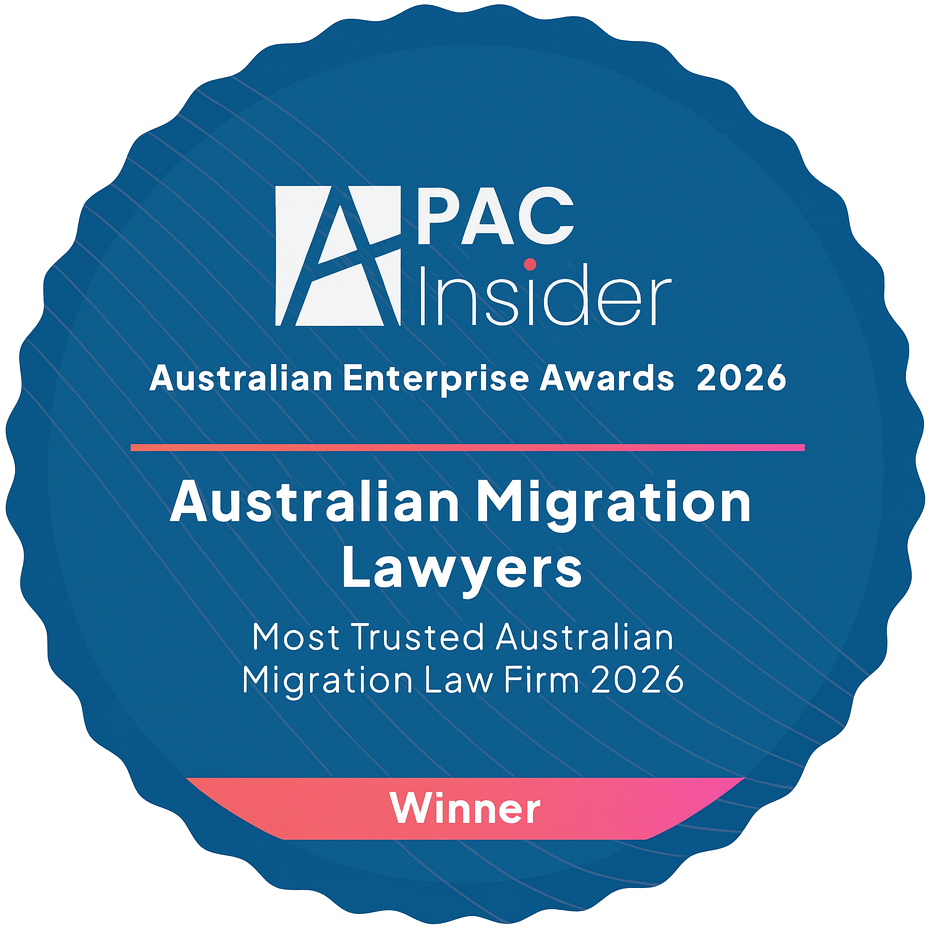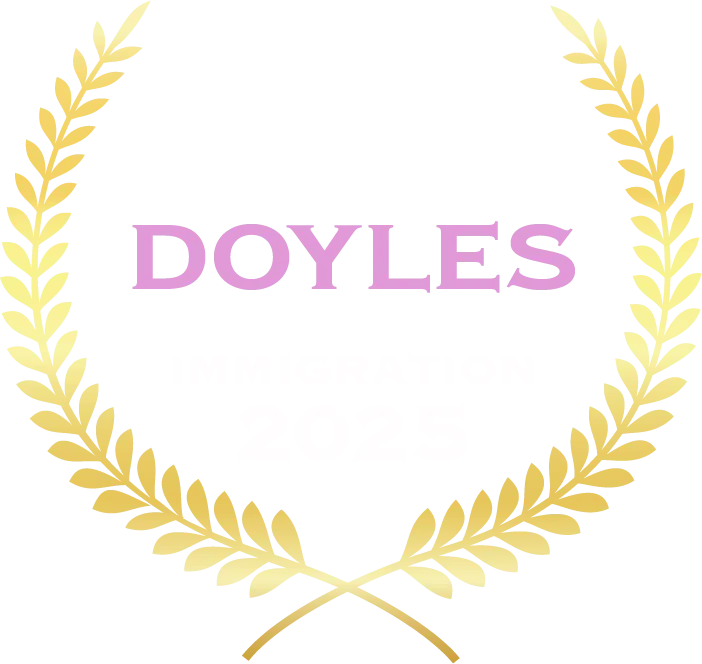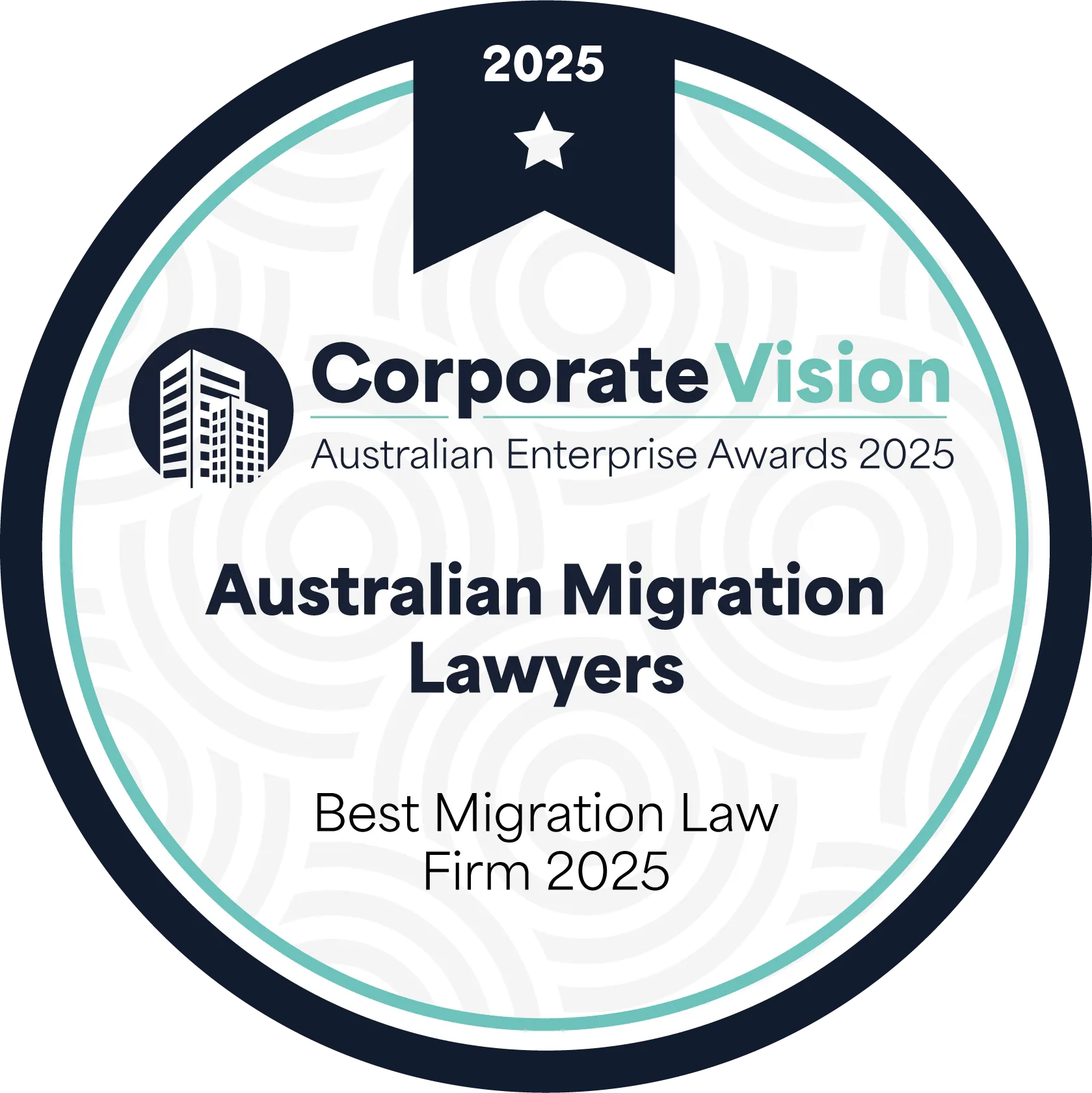Australia's largest independent migration law firm. Open 7 days! Book here.
Need help? We are available 7 days a week.

.webp)

Winner of Most Trusted Australian Migration Law Firm 2023-2026

Ranked 1st for migration law in 2023, 2024 & 2025

Ranked in the top migration lawyers 2023, 2024 & 2025

Ranked the best migration law firm 2024 & 2025

Update: On December 7, 2024 - the Skills in Demand (SID) visa replaced the Temporary Skills Shortage (TSS) visa, please read this blog for more information about the Skils in Demand visa.
The Temporary Skill Shortage (subclass 482) visa is a temporary visa that allows skilled workers to work in Australia for up to four years for an approved sponsor. The purpose of this visa is to address labour shortages in the Australian market by allowing eligible workers in specified occupations to relocate to Australia to fill a nominated position.
The TSS visa came into effect in March 2018, replacing the Temporary Work (Skilled) (subclass 457) visa, and has gone on to become one of the most commonly used employer sponsored visas. The purpose of these visas was to allow Australian employers who are facing difficulty in sourcing workers from the Australian job market to sponsor an overseas worker to fill the position. The TSS visa represents the Australian Government's attempt to balance the need to prevent skill shortages while protecting local jobs, conditions and wages. Applicants and sponsors should be aware that there is no cap on the number of visas which can be granted in any given migration program year, unlike some other visa subclasses, which means that employers can utilise the 482 visa if they meet the specified criteria.
The TSS visa establishes three different streams. The Short-Term stream allows for eligible skilled workers to remain in Australia for up to two years, the Medium-Term stream allows for eligible skilled workers to remain in Australia for up to four years and the Labour Agreement stream allows for eligible skilled workers to remain in Australia for up to four years and requires that the sponsoring employer has an existing Labour Agreement with the Australian Government. The TSS visa also provides for family members of a TSS visa holder (spouse, de facto partner, dependent child) to become additional applicants or apply as subsequent entrants to join the TSS visa holder.
In addition to lodging a visa application and paying the requisite fees, applicants should be aware that various additional information and documents that should accompany an application. The Department of Home Affairs requires that applicants provide additional identity documents including a copy of a passport, sponsorship documents relating to the primary applicant from the nominating employer, and the applicant must provide proof of their skills, such as information from their education institution, a positive skills assessment or evidence that they have competent english.
Should applicants or sponsors need guidance in understanding and applying for a TSS visa, an Australian Migration Lawyer is well placed to assist with any questions or requests relating to different specific circumstances. This includes providing advice to prospective applicants on pathways to permanent residency and potentially becoming an Australian citizen.
[free_consultation]
If you are interested in getting more information about a temporary skills shortage visa, get in touch with Australian Migration Lawyers for a consultation.
[/free_consultation]
The application fees for the TSS visas can differ based on what stream applicants are applying for, and whether there are any subsequent applicants also applying. The entire process consists of three stages. The first two, the sponsorship and nomination, must be paid by the sponsoring employer. The final stage relates to the visa application, which can be paid by either the sponsor or visa applicant.
Visa application fees
The relevant visa application fees are outlined below.
In addition to the above fees, the applicants may be required to pay an additional subsequent temporary application charge of $700 per applicant, depending on their visa history. This will generally be applicable when the applicant is applying for their second visa while onshore, which does not include their initial visa application if it was made while they were offshore.
These fees must be paid prior to the application being lodged. The Department does not accept split payments, but does accept debit/credit card, PayPal, UnionPay and BPAY payments. For further information, applicants can consult the Visa pricing calculator that provides an estimate on the Department’s website, or alternatively can contact an Australian Migration Lawyer.
It is worth noting that payment of these fees is subject to a surcharge as follows depending on the payment method used.
The sponsoring employer must pay both a sponsorship and nomination fee.
In order to sponsor an overseas worker, the employer must become an approved sponsor. While initially a sponsor does not have to be approved in order to lodge TSS nominations, becoming a Standard Business Sponsor is a status that lasts for five years. Furthermore, unless the employer is continuing to sponsor TSS visa applicants, the employer does not have to be a Standard Business Sponsor to continue to employ workers on a TSS visa. There are various requirements that employers must meet in order to become a Standard Business Sponsor. The sponsorship fee only needs to be paid when an employer is initially becoming a sponsor. The sponsorship fee is $420. This must be paid by the sponsoring employer.
Once the employer has become an approved sponsor, the empower must nominate the visa applicant. This nomination can be the most complex part of the TSS visa application, as there are several requirements that must be met. The nomination fee must be paid each time an approved sponsoring employer nominates an applicant. The nomination fee is $330. This must be paid by the sponsoring employer.
All sponsors for a TSS visa must pay the Skilling Australians Fund (SAF) Levy. Referring to the balancing of interests that the Australian Government is engaging in, the SAF levy is designed that if an overseas worker is filling the position of an Australian worker, Australian workers as a whole still benefit. This levy supports the SAF which attempts to develop the Australian job market in numerous ways, such as providing training opportunities and supporting apprenticeships and traineeships.This levy must be paid each time an Australian employer sponsors a overseas worker. This levy must be paid by the sponsoring employer.
The cost of the SAF levy depends on the sponsoring employer's business turnover. If the turnover is under $10 million, the SAF levy is $1200. If the turnover exceeds $10 million, the SAF levy is $1800.
TSS visa applicants and any subsequent applicants are personally liable for healthcare costs while in Australia on their visa. As a result, the Australian Government requires visa applicants to maintain adequate health cover for the whole of the intended stay. The Department outlines on their website information for what they consider to be adequate health insurance for visa holders. Applicants should be aware that some states have reciprocal healthcare agreements with Australia that may provide them medical care under Medicare (Australia’s public healthcare scheme).
At the time of writing, the most widely provided health insurance cover for a TSS visa is known as ‘Overseas Visitors Health Cover’. This cover is provided by a number of Australian insurance providers, with quotes being able to be generated online after a short questionnaire. There are often several different insurance levels available to meet varying medical needs. This insurance can often be paid weekly or monthly. It can be difficult to estimate how much this insurance will cost as it is dependent on an applicant's needs, therefore, it is recommended that applicants compare quotes provided by different insurance providers before making a decision.
[about_us]
Australian Migration Lawyers was founded to offer clients the best migration services available in Australia. Our team of experienced lawyers are ready to help you with your next steps.
[/about_us]
There can often be other associated costs and money expended with a TSS visa application that are unexpected for both the applicant and sponsoring employer.
For the applicant, these costs can arise in establishing their eligibility for a TSS visa. Applicants are required to meet minimum requirements for English Language proficiency assessed through testing, as well as receiving a positive skills assessment also assessed through testing. These costs are in addition to the typical visa requirements of undergoing health (medical examinations) and security (police certificate/clearance) assessment. These costs are in addition to the requirement to hold an appropriate level of health insurance and paying for the application.
For the sponsoring employer, these costs can arise during the nomination process. In nominating an applicant, the employer must fulfil a number of requirements set by the Department. One requirement that can produce unexpected costs is ensuring that the position meets the eligibility criteria for nomination, primarily that the salary must meet the minimum of $70,000 but also reflect the Australian Market Salary rate which can be significantly higher. Furthermore, the sponsoring employer must undergo Labour Market Testing, meaning that two job advertisements must be published for a period of 28 days before a nomination can be made. These costs are in addition to the requirement to be a Standard Business Sponsor and charges for sponsorship and nomination.
For both parties, where further guidance through the complex TSS process is required, a migration agent or lawyer like Australian Migration Lawyers can provide professional assistance in making an application. These fees may vary, however, it will be in addition to any of the other requirements listed on this blog.
[aml_difference][/aml_difference]
While applicants and sponsoring employers can apply for a TSS visa independently, an Australian Migration Lawyer can provide professional assistance in what can be a confusing and time-consuming application. Australian Migration Lawyers are able to assist all parties understand the potential costs of applying and give a comprehensive estimate of the total expenses for obtaining a TSS visa. This can include advising of hidden or unexpected costs that may arise during the process. Should applicants and sponsoring employers wish to receive detailed advice and assistance with a TSS visa, contact an Australian Migration Lawyer who can ensure that the application process is a smooth and informed journey.
.webp)

We have created comprehensive visa guides that outline the ins and outs of visa applications. Get yours today.